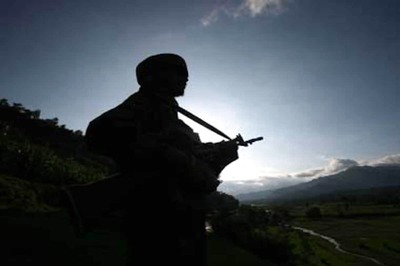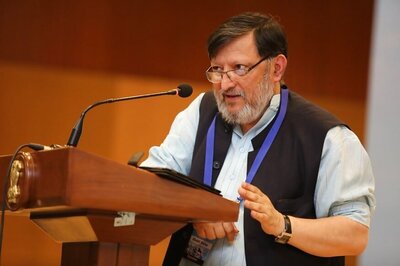
views
Separatist leader Syed Ali Shah Geelani, the face of Kashmir's separatist politics for over three decades, on Monday resigned from the All Party Hurriyat Conference (APHC) of which he was a part since 1993, blaming the "present situation" behind his step.
"In view of the current state of the Hurriyat Conference, I am announcing my complete dissociation from the forum. In this context I have already sent a detailed letter to all constituents of the forum," Geelani said in an audio message released on Monday morning.
The 90-year-old separatist leader has been under house arrest for a major part of the last decade.
In his widely-shared resignation letter, Geelani listed complaints about the family members of Hurriyat leaders seeking plum posts in government and financial irregularities within the separatist fold among the reasons for his stepping down from the party.
Geelani said another reason why he resigned was separatist leaders who remained silent against the revocation of Article 370 despite not being arrested.
The Hurriyat is a group of two dozen separatist outfits. Hurriyat (G) was led by Geelani until his long-time associate Ashraf Sehrai was given the charge in 2018. Mirwaiz Umar Farooq and Yasin Malik head their own outfits, which are part of the APHC.
"Even though I am in captivity, I have tried to look for you, I have continuously sent messages for you, but despite my efforts, you were not available. To make plans and to guide the community neither my health nor my captivity was a hurdle," Geelani said in his letter in what could be read as a message not just to the separatists in the Valley but to those running the Pakistan office of the Hurriyat.
Geelani's resignation is likely to cause a crisis of credibility for the separatist movement and its leaders. Of the remaining two other big leaders of Hurriyat, Farooq is being investigated in a terror funding case while Malik is being tried for the murder of four Indian Air Force (IAF) personnel. Other separatist leaders like Shabir Shah are in prison in terror financing cases.
Among the various factions of the Hurriyat, Geelani arguably holds the greatest sway among the local Kashmiris. Security agencies have reportedly made a 'G-Plan' to deal with the demise of the ailing separatist leader, rumours of whose deaths often put the security grid in the Valley on alert.
Hurriyat was founded in 1993 by political leaders like Geelani who had contested the rigged 1987 Assembly polls. These outfits were accused of acting as the political wing of militant groups.
Differences between various Hurriyat factions is not new. The different factions led by separatist leaders have accused each other of softening their positions. In 2003, the Geelani-led faction split because of differences with the Mirwaiz-led faction, which was in favour of participating in talks between India and Pakistan.
In 2014, Shah and Mirwaiz grew apart and the former went on to form a third separatist group called the 'Real Hurriyat'.
Hurriyat leaders have also come under scrutiny of investigative agencies for amassing disproportionate wealth and for evading taxes.




















Comments
0 comment